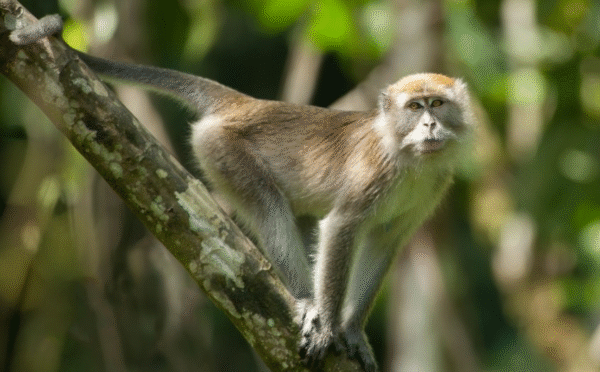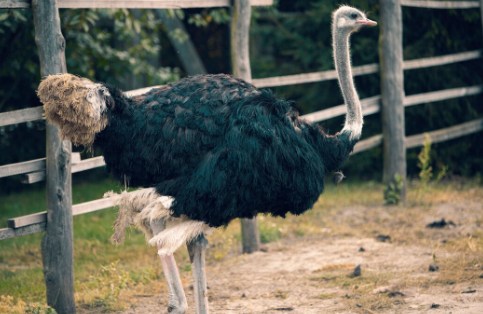Phase 5: Exclusive Branding of Products in the Region
Overview of Branding Products and Regional Markets
Phase 5 marks the stage of transforming Jessie’s Sunshine Farm from a functioning agricultural property into branding of our products and as a rural lifestyle destination. A place known not only for what it produces, but also for what it represents: harmony, learning, and sustainable living.
It is the phase of maturity and external expansion of Jessie’s Sunshine Farm. It is the phase where years of groundwork, planting, and system development begin to pay off in both economic returns and public recognition.
After successfully establishing multi-canopy plantations, farm infrastructure, market networks, and tourism facilities, the farm now shifts its focus to product identity, regional partnerships, and long-term sustainability.
Branding of Products and Rural Lifestyle
1. Strengthening Production and Value Chain Expansion
As the farm’s fruit trees and coconuts continue maturing, Phase 5 emphasizes processing efficiency and value addition.
Coconut and Fruit Processing Hub
Building on the copra and virgin coconut oil operations from Phase 4, a small processing hub will be established at the Old Mango Tree.
This will include:
Cold-press units for virgin coconut oil production at scale.
Drying and storage facilities for copra, cacao, and coffee beans.
Small food processing area for jams, dried fruits, and banana chips.
This expansion allows Jessie’s Sunshine Farm to convert raw harvests into high-value, shelf-stable products ready for local sale and online distribution.
Sustainable Waste Utilization
In parallel, a waste-to-value system will be implemented:
Coconut husks and shells turned into mulch, charcoal, and handicraft materials.
Fruit peels and pulp composted for organic fertilizer.
Water recycling and biofiltration systems introduced to reduce waste runoff.
These practices ensure that every output from the farm supports environmental sustainability and cost efficiency.
2. Product Branding and Packaging
With value-added production in motion, Jessie’s Sunshine Farm now focuses on brand identity and market presentation.
Brand Concept
The brand will revolve around themes of “Sunshine, Sustainability, and Soul”, which are representing the warmth of local farming, the commitment to eco-friendly practices, and the authenticity of farm-grown produce.
Products will feature:
Simple, elegant packaging highlighting the farm’s logo, location, and story.
Use of biodegradable and recyclable materials.
Labels emphasizing natural, community-made, and traceable origin.
Signature Product Lines
Initial branding will focus on:
Jessie’s Virgin Coconut Oil
Cold-pressed and pure, marketed for wellness and culinary use.
Jessie’s Sunshine Dried Fruits
Dried mango, papaya, and banana chips in eco-pouches.
Jessie’s Calamansi Concentrate and Coffee Blend
Signature drinks highlighting the farm’s diverse canopy crops.
Future sub-brands may include Sunshine Naturals for skin-care oils, Sunshine Snacks, and Sunshine Farm Café Blends, Boss Kano Wine and Spirits, Jessie’s Sunshine Face Cream, and more.
3. Regional Market Consolidation and Trade Partnerships
With distribution routes already serving Masimag, Mahayahay, Maramag, Don Carlos, Dancagan, Kibawe, Kadingilan, Phase 5 strengthens trade relationships and explores partnerships for expanded market reach.

Local and Regional Agricultural Trading
Establish supply agreements with agricultural trading companies for consistent delivery of copra, coffee, and fruits.
Negotiate wholesale contracts with supermarkets and cooperatives across Bukidnon and neighboring provinces.
Maintain weekly 5-ton truck deliveries under a structured logistics calendar.
Cold Storage and Packaging Facility
To improve freshness and reduce post-harvest loss, a modular cold storage facility will be added. This allows the farm to preserve fruits longer, ensuring quality for both regional deliveries and e-commerce shipments.
Future Export Development
The long-term goal is to achieve export readiness, beginning with products like VCO, dried mango, and cacao. Preparations include product certification, improved labeling, and compliance with FDA and organic standards.
Tourism and Mini Zoo
4. Full-Scale Eco-Tourism and Farm Experience
Tourism now blossoms into a cornerstone of Jessie’s Sunshine Farm’s identity. Building upon the cottages and Function Hall, and a new CLUB Member Swimming Pool, this phase develops a complete “Farm Experience Program” that combines education, leisure, and wellness.
Farm Experience and Work Vacation
Visitors can engage in daily farm activities from harvesting to feeding livestock through structured programs:
“Day in the Life of a Farmer” tours, offering immersive hands-on experiences.
Work Vacation Packages, where guests can stay in cottages, work on the farm, and learn sustainable living.
Wellness Retreats, incorporating yoga, massage, meditation, and organic meals under the coconut canopy.
Function Hall Tourism Enhancements
The Function Hall with twin group cottages for male and female, continues to host:
– Corporate team-building
– Agricultural seminars.
– Local celebrations, weddings, and cultural events.
– Sustainability workshops in partnership with schools and NGOs.
Café Expansion
The café’s menu will be expanded to include:
– Farm-to-table dishes made from the farm’s own harvests.
– Specialty drinks using coconut milk, calamansi, and farm-grown coffee.
– Weekend buffets and tasting sessions to promote local flavors.
Through these tourism programs, Jessie’s Sunshine Farm evolves into a destination of experience where guests learn, relax, and reconnect with nature.
5. Mini Zoo and Animal Interaction Zone
A Living Classroom on the Farm
Adding another dimension to the eco-tourism experience, Jessie’s Sunshine Farm envisions a Mini Zoo and Animal Interaction Zone where visitors can encounter and learn about the animals that play vital roles in both Philippine ecosystems and farm life.
This dedicated area will showcase a mix of native wildlife and domesticated species, such as the Philippine deer, wild boar, native chickens, ducks, goats, and the beloved carabao, the country’s national farm animal and a symbol of hard work and resilience. Aviaries will also feature local bird species, including maya, lovebirds, and Philippine parrots, adding color and sound to the rural landscape.
The Mini Zoo is more than a display. It’s an interactive educational space. Guests, especially children, can participate in animal feeding, learn about proper animal care, and understand the connection between sustainable farming and biodiversity preservation. Guided tours and simple farm lectures will help visitors appreciate how animals contribute to ecological balance and food security.
Economically, this attraction provides new income streams through ticketed tours, local snack stalls, and farm-themed merchandise. Most importantly, it strengthens the farm’s identity as a family-friendly destination where learning, conservation, and recreation come together—reflecting Jessie’s Sunshine Farm’s enduring commitment to faith, stewardship, and sustainable community growth.
6. Educational Partnerships and Community Integration
A defining element of Phase 5 is education and collaboration. The farm will open its gates to schools, universities, and organizations for training and research.
Planned initiatives include:
Agricultural internships for students in farming, agribusiness, and environmental studies.
Livelihood workshops for local communities, focusing on organic gardening, composting, and small-scale entrepreneurship.
Partnerships with LGUs, Government Departments, and agricultural offices for joint training, seedling distribution, and sustainable farming demonstrations.
This transforms Jessie’s Sunshine Farm into a hub of rural learning, connecting traditional wisdom with modern sustainability practices.

7. Conclusion: A Model of Modern Rural Prosperity
Phase 5 symbolizes the culmination of Jessie’s Sunshine Farm’s original vision — a living, breathing proof that sustainable agriculture, technology, and community can coexist in prosperity.
From its roots in cleared soil to the rows of Catigan coconuts, durian trees, cacao, and coffee, every phase has built upon the last — creating not just a farm, but a rural enterprise, an educational sanctuary, and a tourism destination.
Now producing, processing, and teaching, Jessie’s Sunshine Farm stands as a model for modern Filipino farming — where hard work meets innovation, where the land feeds both body and soul, and where every visitor leaves inspired by life under the sunshine.
At Jessie’s Sunshine Farm, every seed we plant and every harvest we gather is dedicated to the glory of God. Our vision for sustainable farming, community growth, and regional integration is rooted in faith alone. Knowing that true abundance comes from the Lord, not just the soil.
